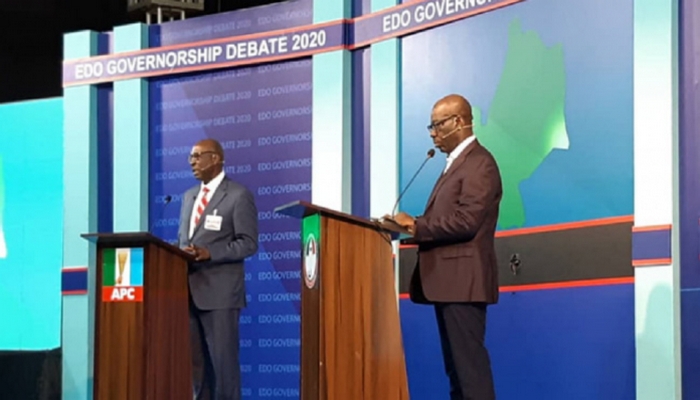Using Edo governorship election as model for future elections

“The commission is deploying magnifying glasses and braille ballot guides to assist Persons with Disabilities to vote unaided,” he said.
In a Tweet on Sunday, Buhari commended the people of Edo, the political parties, candidates and security agencies for conducting themselves responsibly.
“My commitment to free and fair elections is firm, because without free and fair elections, the foundation of our political and moral authority will be weak.
“I have consistently advocated for free and fair elections in the country because it is the bedrock of true democratic order.
“Democracy will mean nothing if the votes of the people don’t count or if their mandate is fraudulently tampered with,” Buhari said.
Gov. Nyesom Wike of Rivers, a chieftain of the PDP, was among the first Nigerians to commended INEC, and the Nigeria Police for their conduct during the Edo election.
Wike, who is the Chairman of PDP National Campaign Council, said that the conduct of INEC and the police showed that there was improvement in the conduct of elections.
According to him, the neutrality of the electoral body and security agencies means that the election in Edo was free and fair.
Similarly, YIAGA Africa, a civil society organisation, also commended INEC, saying its result in Edo was consistent with its Parallel Vote Tabulation (PVT) methodology.
On the few incidences of electoral infractions such as vote buying, he said “the commission partnered with the anti-corruption agencies in the review of electons.
“What we do in terms of the review is to find out what happened.
“When we visited Benin, we had meeting; when we do the review, there would be useful lessons to learn ahead of Ondo State assignment,” he said.
In whatever approach adopted, stakeholders note that there ought to be more efforts at building on the success of Edo governoship election to be used in future elections.(NANFeatures)
**If used, please, credit News Agency of Nigeria and the writer






